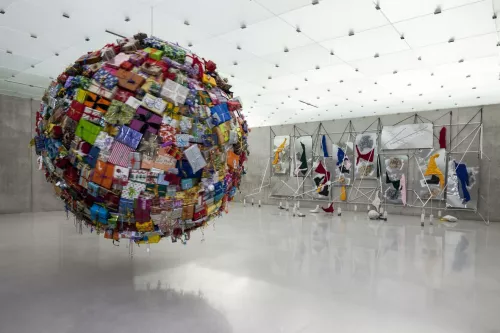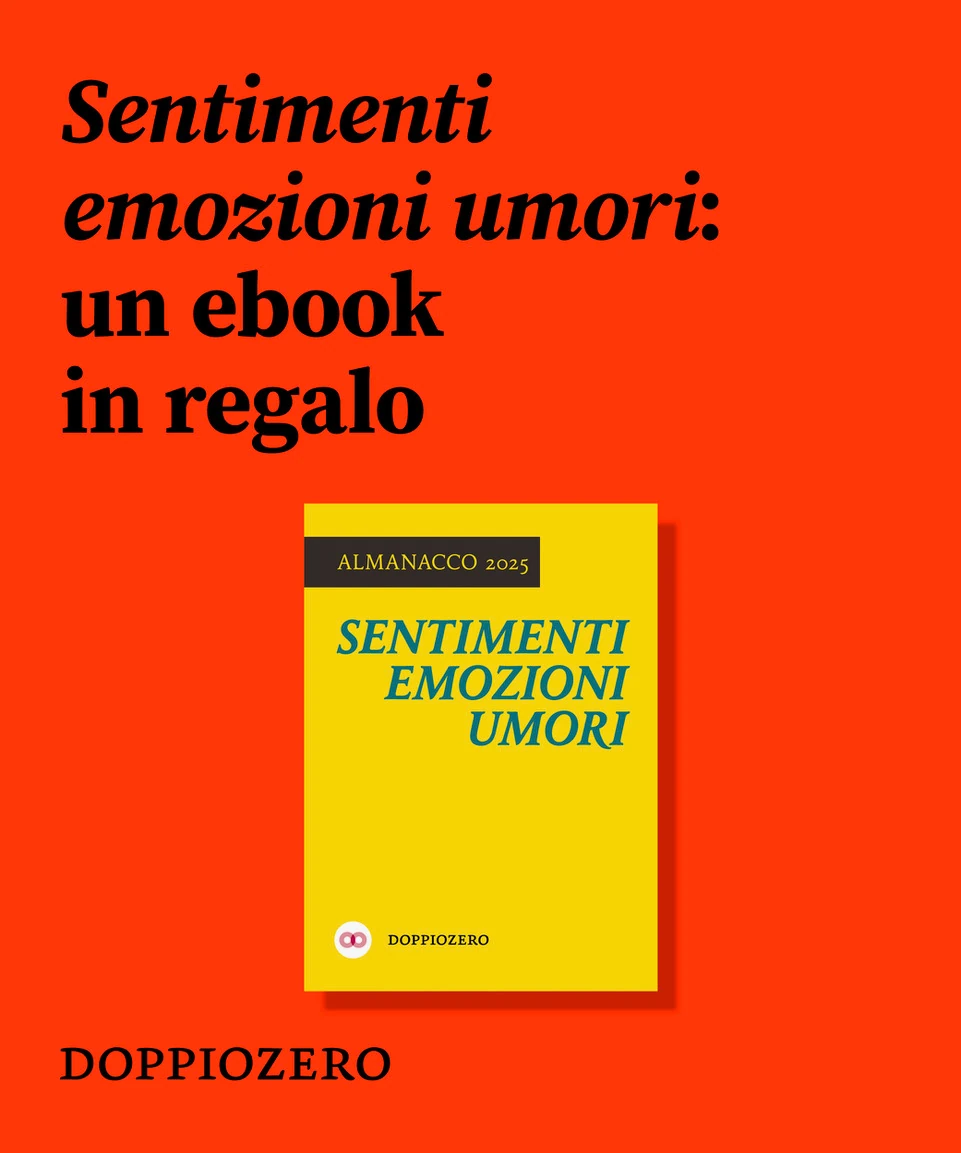Speciale
The future of an illusion
Since some time now the old Europe seems to be suffering from a strange fever: the contemporary African art! From fairs to the exhibitions, from seasons to symposiums, suddenly it discovered the existence of the continent that for many represents, to use an expression borrowed from Joseph Conrad, “the heart of darkness”. And the most amusing thing in this sudden enthusiasm, which who knows how long is going to last, is that it seems like we are back in history.
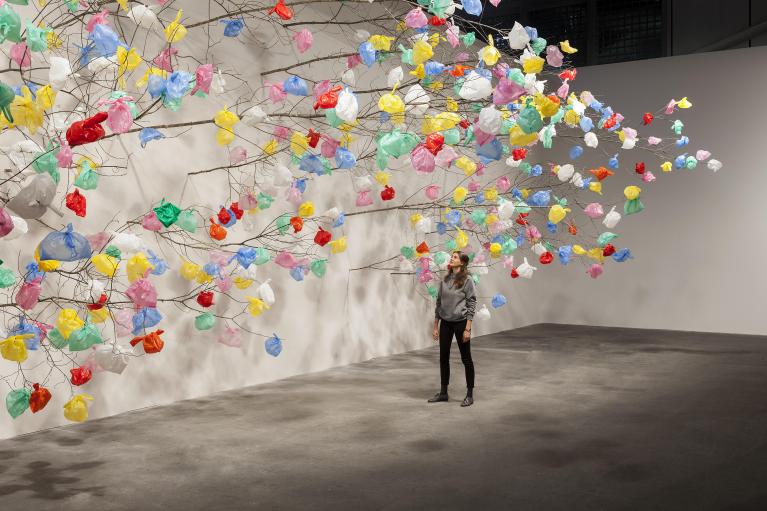
Pascale Marthine Tayou, Plastic Tree, 2014/2015. Exhibition : Art Basel Unlimited. 2015 / Art Basel. Courtesy the artist and GALLERIA CONTINUA, San Gimignano / Beijing / Les Moulins / Habana. Photo by: Andrea Rossetti
Everywhere the word “discovery” is being hailed, as if the new Christopher Colombus, Magellan, Vasco de Gamma and Marco Polo had transformed into the collectors, gallerists, museum directors, who see themselves as the only ones capable, according to Sartre, to extract the whole thing from the primal darkness:
“For three thousand years, the white man has enjoyed the privilege of seeing without being seen; he was only a look; the light from his eyes drew each thing out of the shadow of its birth; the whiteness of his skin was another look, condensed light. The white man, white because he was man, white like daylight, white like truth, white like virtue, lit up the creation like a torch and unveiled the secret white essence of beings.”
(Jean Paul Sartre, Orphée Noir, in Anthologie de la Nouvelle poésie nègre et malgache, Paris, PUF, 1948).
The white man, just as the black man, are here just the metaphors that represent the dominators and the dominated.
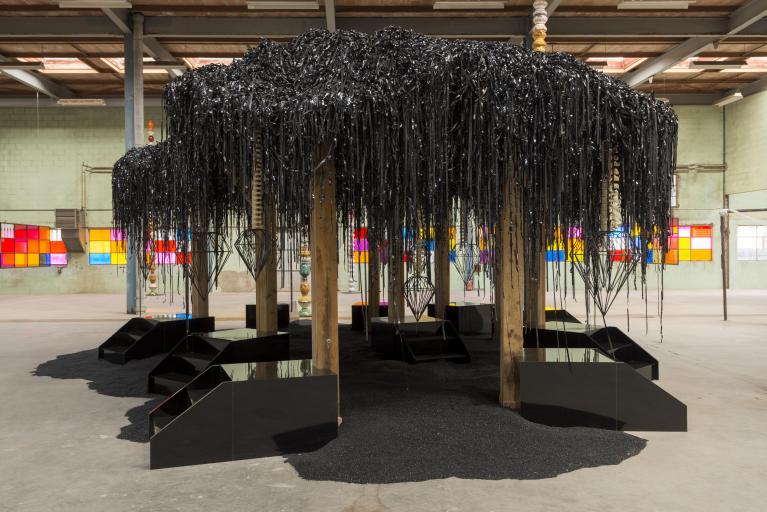 Pascale Marthine Tayou, Diamondscape, 2012. Wood, formica shiny metal structures, chains, resin, motors, cables, telephone wires and magnetic stripe. Variable dimensions. Exhibition view Voodoo Child - Galleria Continua / Les Moulins, April 2017 Courtesy the artist and GALLERIA CONTINUA, San Gimignano / Beijing / Les Moulins / Habana. Photo by Oak Taylor-Smith
Pascale Marthine Tayou, Diamondscape, 2012. Wood, formica shiny metal structures, chains, resin, motors, cables, telephone wires and magnetic stripe. Variable dimensions. Exhibition view Voodoo Child - Galleria Continua / Les Moulins, April 2017 Courtesy the artist and GALLERIA CONTINUA, San Gimignano / Beijing / Les Moulins / Habana. Photo by Oak Taylor-Smith
Sartre said it all. The world is suddenly behaving as if William Kentridge, El Anatsui, Julie Merethu, Pascale Marthine Tayou (to mention just a few) had waited for the green light from the West to start creating. The truth is that since about thirty years, with an exponential progression, Africa has been working. The biennials, the festivals, the contemporary art centres are happening each year. The numerous upcoming curators (Elvira Dyangani, Koyo Kouoh, Elise Atangana, Bonaventure Ndikung…) have arrived and helped to reveal the contemporary language of the Africans to the world stuck in its ethnocentric definitions. The market follows and does nothing but follow.
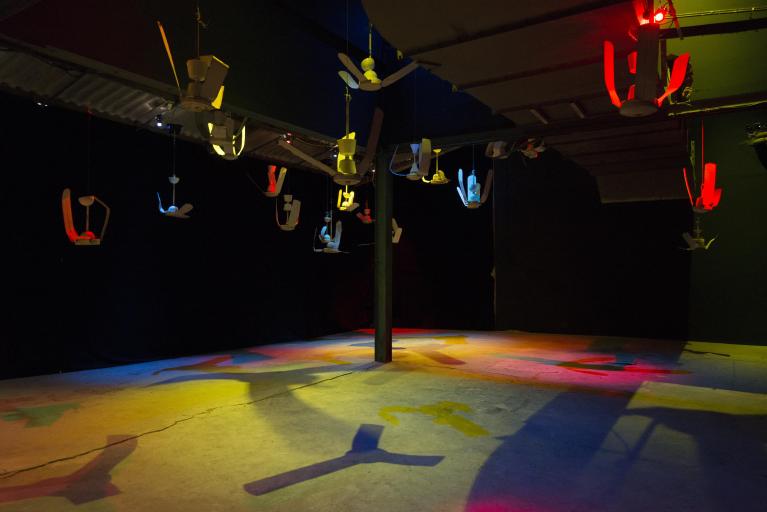
Pascale Marthine Tayou, La danse des ventilateurs, le vent…, 2012. Ventilateurs, motors. Variable dimensions. Exhibition view Voodoo Child - Galleria Continua / Les Moulins, April 2017. Courtesy the artist and GALLERIA CONTINUA, San Gimignano / Beijing / Les Moulins / Habana. Photo by Oak Taylor-Smith
We were wrong to think that the increase of sales or bids given to Africa was random. Better than that! A new generation of African businessmen and women realised the importance of the artistic creation in defining an identity and in the aesthetic and philosophical positioning of the independent and original African thought (the initiatives like Revue Noire have greatly contributed to this). I could also mention an initiative, in which I am involved with lettera27 Foundation in Milan. It’s called AtWork and its objective is to give the young artists from the continent the intellectual tools to help them navigate this complex world.
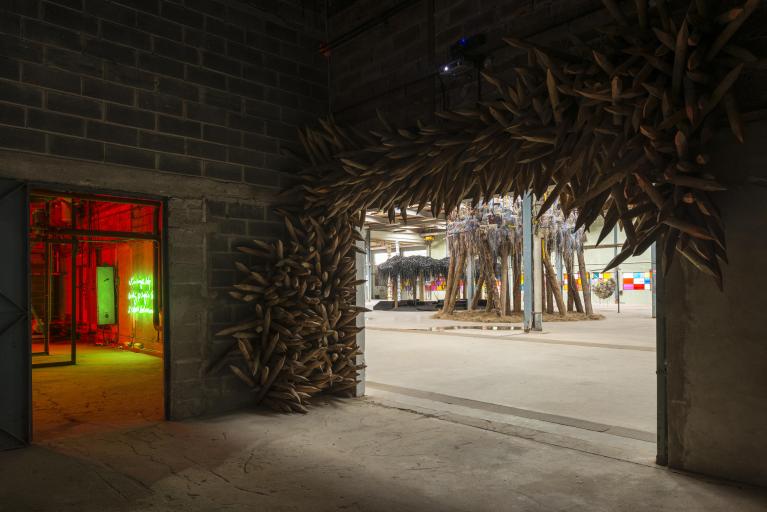
Pascale Marthine Tayou, Beautiful Sky, 2014. Wood. Variable dimensions. Exhibition view Voodoo Child - Galleria Continua / Les Moulins, April 2017. Courtesy the artist and GALLERIA CONTINUA, San Gimignano / Beijing / Les Moulins / Habana. Photo by Oak Taylor-Smith
The phenomenon that we are currently witnessing couldn’t be but an illusion in the West. A proclaimed trend that will be swept away by another. But if we actually made an effort to think beyond the ancient Centre, we would be forced to note that it is thanks to their work that the Africans made themselves heard in the world. They keep on working in what can be called the whims of the “global” market that is essentially revolving around itself. And if there is one noteworthy event at the beginning of this millennium it’s definitely that. The Africa and the Africans are not waiting to be knighted by one institution or the other. They had to create starting from zero. And the fruits that are slowly starting to sprout up are nothing but a logical step towards an inevitable maturity. And at the risk of upsetting all those good willed that do not understand that the Africans had decided to take their destiny into their own hands, I feel like shouting these words by Sartre: “When you removed the gag that was keeping these black mouths shut, what were you hoping for? That they would sing your praises? Did you think that when they raised themselves up again, you would read adoration in the eyes of these heads that our fathers had forced to bend down to the very ground? Here are black men standing, looking at us, and I hope that you, like me, will feel the shock of being seen.”
It’s this “shock of being seen” that we have already staged with Fernando Alvim ten years ago at the Venice Biennale. And the flourishing of the new pavilions, sometimes conceived and produced regardless the resistance of the very country that they represent, are the clear signs of this movement and desire of Africans to express themselves on their own terms. Nothing would make me happier than to think that the old Europe has finally understood that it does not decide everything and that it doesn’t anymore have the universal power to control and regulate. The years to come are still to teach the world a lot in this sense.
This article is republished with the kind permission of Il Manifesto. You can see the original article here.
